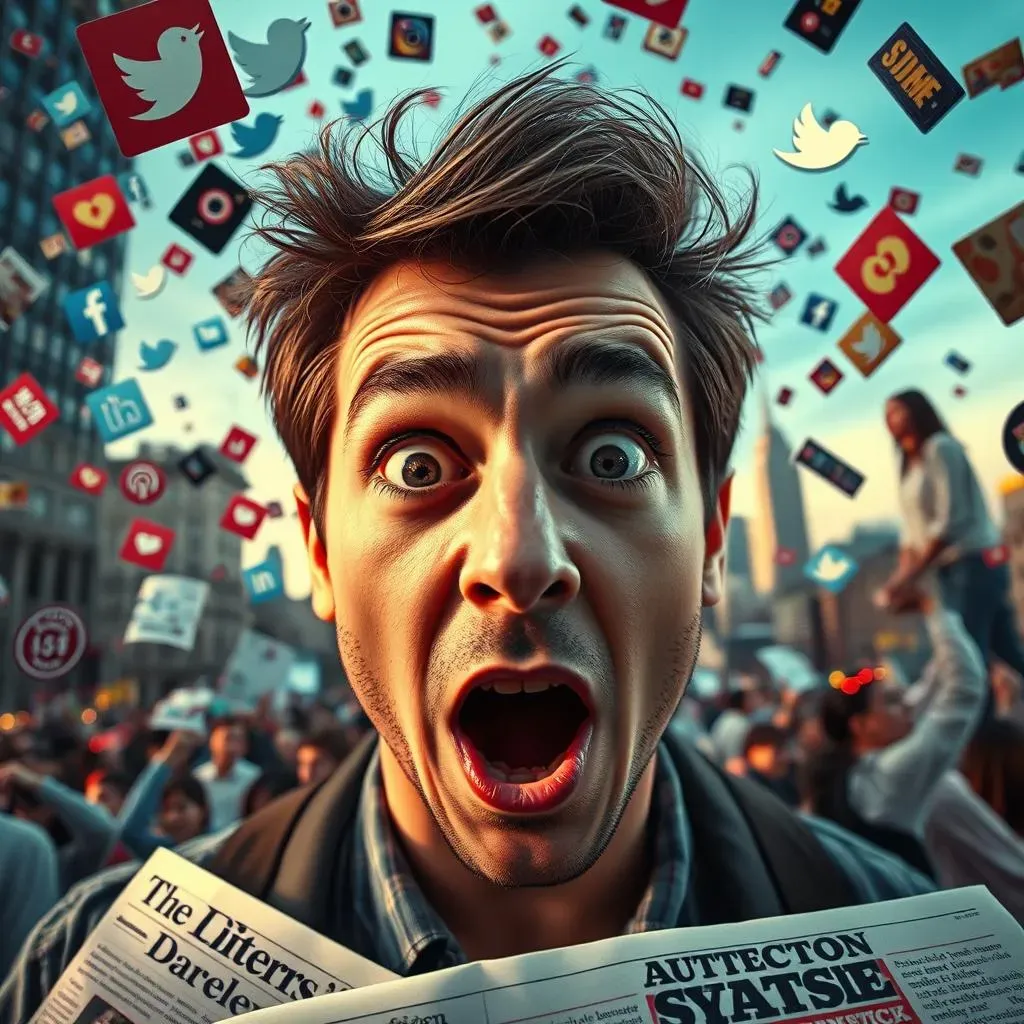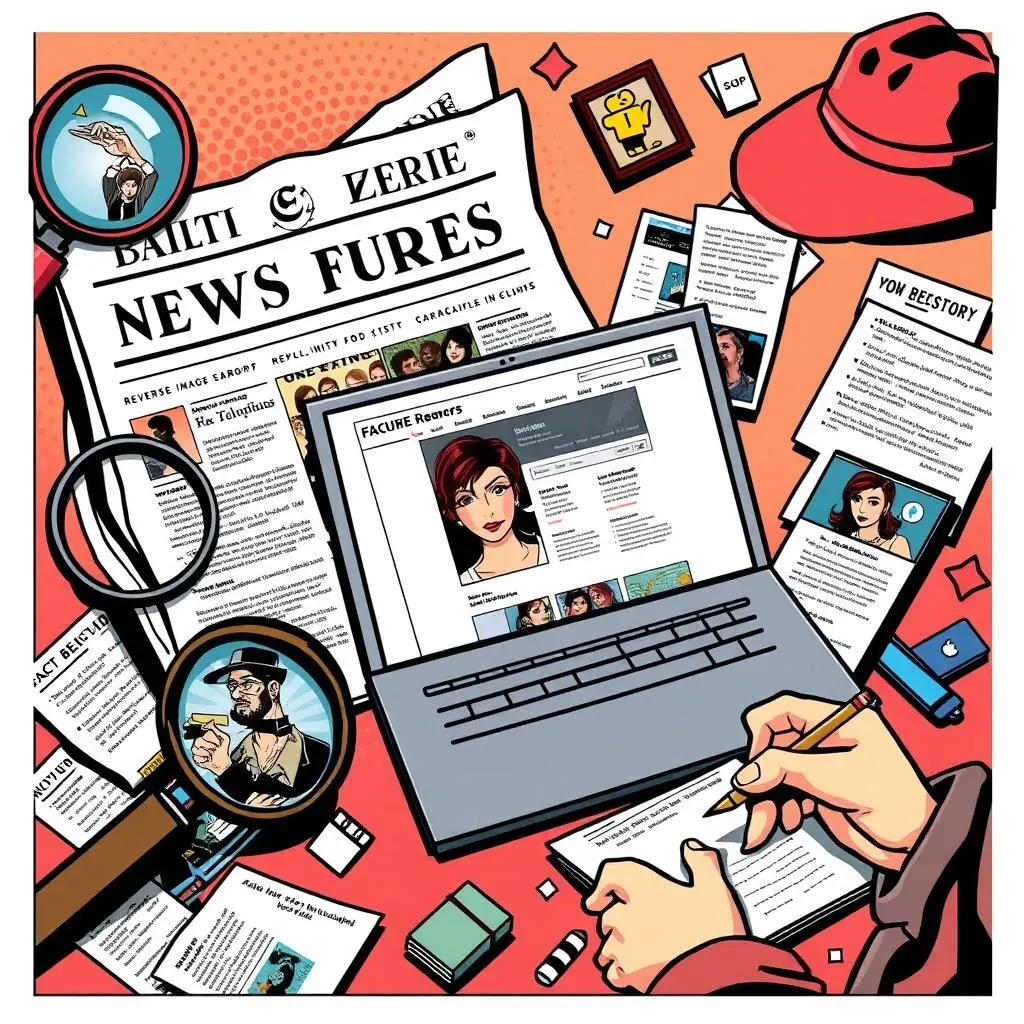Table of Contents
Ever wondered if that juicy celebrity gossip you just read is actually true? In today's world, celebrity rumors spread faster than ever, thanks to social media and the internet. It's like a giant game of telephone, where stories get twisted and exaggerated along the way. This article isn't about fueling the fire of gossip; it's about equipping you with the skills to become a savvy fact-checker. We'll explore how these rumors take hold, what tools you can use for celebrity rumors fact-checking, and what happens when false stories go too far. Think of this as your guide to navigating the wild world of celebrity news, helping you separate fact from fiction. We'll tackle the big questions: how do these rumors even start, and what can we do to protect ourselves from falling for fake news? By the end, you'll be a pro at spotting the red flags and understanding the impact of celebrity rumors fact-checking. So, buckle up, and let's get started!
Why Celebrity Rumors Spread Like Wildfire

Why Celebrity Rumors Spread Like Wildfire
Okay, so why do these celebrity rumors spread so fast? It's like they've got little legs and can run all over the internet. One reason is that we're just plain curious about famous people. They live these seemingly glamorous lives, and we want to know all the juicy details. It's human nature, I guess. Another big factor is social media. A tiny bit of gossip can go viral in seconds. Someone posts something, even if it's not true, and bam! Everyone's sharing it. It's like a digital game of telephone, and by the time it gets to the last person, the story is usually way off from where it started. Plus, there are some websites out there that don't really care about the truth; they just want clicks and attention, so they'll post anything, true or not, just to get people talking. It's a recipe for rumor madness.
And let's not forget the good old-fashioned "excitement" factor. People love a good story, especially if it's a little scandalous. It’s like watching a soap opera unfold in real life, and the more dramatic the story, the faster it spreads. Sometimes, it's not even about whether the rumor is true; it's about the thrill of being in the know. We like to feel like we have some inside information, something that others don't. It makes us feel connected to the celebrity world, even if it’s based on a lie. Then, of course, there's the whole "confirmation bias" thing. If you already have a certain opinion about a celebrity, you're more likely to believe a rumor that fits with that opinion. It's like we see what we want to see, even if it isn't there.
Reason for Rumor Spread | Explanation |
|---|---|
Curiosity about Celebrities | We're fascinated by their lives and want to know the details. |
Social Media Speed | Rumors go viral quickly and spread widely. |
Clickbait | Some websites prioritize clicks over truth. |
The Excitement Factor | People enjoy a good, dramatic story. |
Confirmation Bias | We believe rumors that fit our existing opinions. |
The Art of Celebrity Rumors FactChecking: Tools and Techniques

The Art of Celebrity Rumors FactChecking: Tools and Techniques
Alright, so you're ready to become a celebrity rumor buster? It's not as hard as it looks, I promise. Think of it like being a detective, but instead of solving crimes, you're solving the mystery of whether a celebrity is actually dating a dolphin (yes, that's a real rumor I've seen). The first tool in your kit is your brain—use it! Before you believe anything, ask yourself, "Does this even make sense?" If it sounds too wild, it probably is. Next up, you gotta check your sources. Where did you hear this rumor? Was it from a reputable news site, or from some random blog with a name like "TotallyRealGossip.com"? If it's the latter, raise a red flag.
Another super helpful thing is to look for evidence. Does the article or post cite any real sources? Are there any photos or videos, and if so, do they look legit? Sometimes, people will just slap a picture with a celebrity's face on it, but it's not actually related to the story. A reverse image search can be your best friend here. It'll show you where else that picture has been used, and if it's been used in a bunch of unrelated places, it's probably a fake. And don't be shy about cross-checking. If one site is saying something, see if other places are reporting the same thing. If it's only one place, it's likely a rumor, not a fact. It's all about being skeptical and doing a little digging before you jump to conclusions.
Fact-Checking Tool | How It Helps |
|---|---|
Your Brain | Apply common sense; if it sounds too crazy, it probably is. |
Source Evaluation | Check if the news source is reliable and reputable. |
Evidence Verification | Look for concrete evidence like photos, videos, and reliable quotes. |
Reverse Image Search | Verify if images have been used in other contexts. |
Cross-Checking | Compare information with other news sources. |
When Celebrity Rumors Go Wrong: RealLife Consequences

When Celebrity Rumors Go Wrong: RealLife Consequences
Reputations on the Line
Okay, so we've talked about why rumors spread and how to spot the fakes, but what happens when these rumors actually take hold? It's not just some silly internet game, folks. Real lives get affected, and it can get ugly. Think about it: a false story about a celebrity can completely trash their reputation. It doesn't matter if it's about a bad habit, a secret relationship, or something even more serious, once it's out there, it's hard to shake. People start to see the celebrity in a negative light, and that can impact their career, their relationships, and even their mental health. It's like a stain that just won't come out, and the worst part is, it's often based on lies.
I remember reading about this one actor who got caught up in a false rumor about being difficult to work with. Suddenly, no one wanted to hire them, and they lost out on some great opportunities. It didn’t matter that the rumor wasn't true; the damage was done. It's like a snowball effect; the rumor starts small, but it grows and grows, causing more and more harm. And the internet? It doesn't forget. These stories can haunt people for years, popping up every time someone Googles their name. It's a harsh reality, and it's a reminder that words, even if they're just typed on a screen, can have a huge impact.
Financial Fallout
It's not just about reputations; rumors can also hit celebrities where it really hurts: their wallets. Think of all the endorsements, sponsorships, and movie deals that depend on a celebrity's public image. If a false rumor makes them look bad, those opportunities can vanish in an instant. Companies don't want to be associated with someone who's caught up in scandal, even if it's not their fault. I read about this singer who lost a major endorsement deal because of a rumor that they were involved in some shady business. The rumor turned out to be totally false, but the damage was done, and they lost a ton of money. It's like a domino effect; one false story can knock down a whole career.
And it's not just the big deals that are affected. Even smaller things, like ticket sales for concerts or merchandise sales, can drop if people start to believe negative rumors. It's a huge financial risk for celebrities, and it's why they often have to spend a lot of time and money trying to clean up the mess created by false stories. It's like they're constantly fighting a battle to protect their image, and it's a battle that can be incredibly expensive. And let’s not forget the legal fees that come from trying to sue people who spread lies, it is not cheap.
Consequence | Description |
|---|---|
Damaged Reputation | False stories can lead to a negative public image. |
Career Impact | Rumors can lead to loss of jobs and opportunities. |
Financial Loss | Endorsements and sponsorships can be lost due to scandal. |
Mental Health | The stress of rumors can affect well-being. |
Legal Battles | Celebrities can spend large sums to fight back against rumors. |
The Emotional Toll
Beyond the money and the career hits, let's talk about the emotional toll that these rumors can take. Imagine waking up one day to find that the whole world thinks you're a terrible person, and it's all based on lies. It's got to be incredibly stressful and heartbreaking. Celebrities are people too, with feelings and families, and constantly being bombarded with negativity can have a serious impact on their mental health. The constant scrutiny, the online hate, and the feeling that they can’t escape the rumors can lead to anxiety, depression, and other mental health issues. It's like being trapped in a nightmare, and it's hard to imagine what that must be like.
And it's not just the celebrities themselves who are affected. Their families and friends also have to deal with the fallout from these rumors. Imagine being the parent or the child of someone who's being dragged through the mud online. It's got to be incredibly painful and frustrating to watch someone you love be targeted by false stories. It's a reminder that behind every celebrity, there are real people with real lives, and these rumors can cause real harm. It's not just entertainment; it's a human issue, and we should all be more mindful of the impact our words and actions can have, even online.
Navigating the World of Celebrity Rumors FactChecking

Navigating the World of Celebrity Rumors FactChecking
Becoming a Savvy Consumer
Okay, so you've got the tools, you know the risks, but how do you actually navigate this crazy world of celebrity rumors? It's all about becoming a savvy consumer of information. Think of it like this: you wouldn't buy a car without doing some research, right? You'd check the reviews, compare prices, and make sure it's a good deal. You need to approach celebrity news with the same level of caution. Don't just believe everything you read or hear. Instead, take a step back, be critical, and ask yourself if the story sounds legit. It's like being a detective, always looking for clues and questioning the evidence.
One of the best things you can do is to diversify your news sources. Don't rely on just one website or social media account for your information. Instead, try to get news from a variety of different places. This way, you'll get a more balanced view of what's going on, and it's less likely that you'll fall for a fake story. It's like trying to solve a puzzle; the more pieces you have, the clearer the picture becomes. And remember, if something seems too good (or too bad) to be true, it probably is. Trust your gut, and don't be afraid to question everything.
Tip | Description |
|---|---|
Be Critical | Don't believe everything you read; question the information. |
Diversify Sources | Get information from multiple sources to get a balanced view. |
Trust Your Gut | If something sounds too good or bad, it's likely false. |
The Role of Social Media
Social media is a huge part of how celebrity rumors spread, and it's important to understand how it works. Platforms like Twitter, Instagram, and TikTok can be amazing places to connect with people, but they can also be a breeding ground for misinformation. It's so easy to share things without fact-checking, and sometimes, people do it intentionally to cause chaos. So, when you're scrolling through your feed and you see some crazy celebrity rumor, don't automatically assume it's true. Take a breath, and use your fact-checking skills. Check the source, look for evidence, and see if other places are reporting the same story. It's like being a responsible driver; you need to be aware of your surroundings and make sure you're not causing an accident.
And also remember, that social media is designed to get your attention, and often, that means showing you the most sensational stuff. These platforms use algorithms to decide what you see, and they're more likely to show you things that are exciting and dramatic. It's like being in a carnival; everything is bright and shiny and designed to grab your attention. So, be mindful of this, and don't let social media dictate what you believe. Instead, take control and be a smart consumer of information. It's all about being proactive and making sure you're not being manipulated by social media algorithms. It's like being a good detective, always digging a bit deeper to find the truth.
“The first principle is that you must not fool yourself and you are the easiest person to fool.” – Richard Feynman